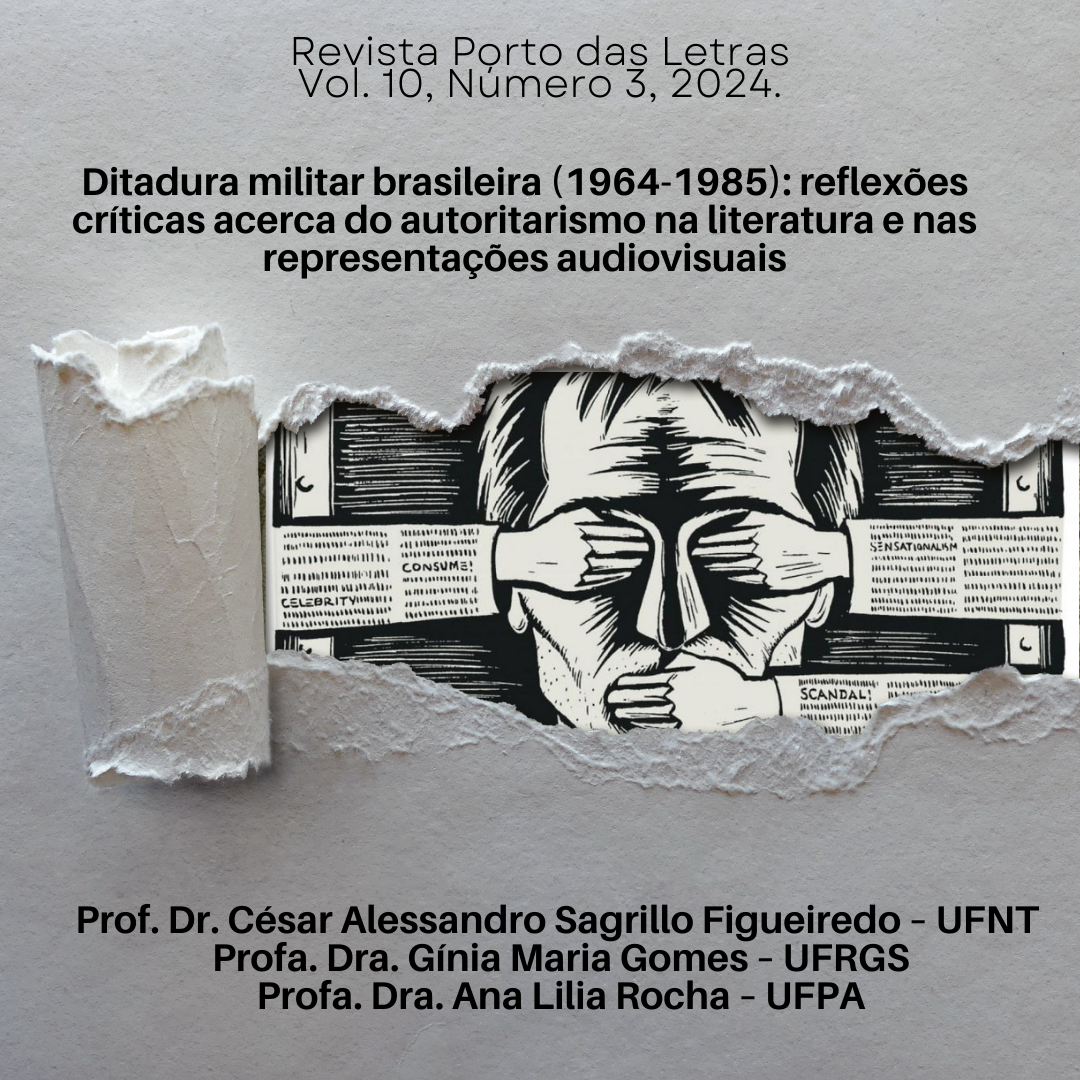ECOPOETICS OF MUNTURO
BIOREGIONAL, AESTHETIC, AND ECOCRITICAL MOVEMENTS IN THE BODY-LAND RELATIONSHIP IN MUNTURO, BY MÔ MOREIRA
DOI:
https://doi.org/10.20873.24.4030Keywords:
Ecopoetics, Munturo, Ecocriticism, BiorregionalismAbstract
When body and land intertwine in the realm of language, another margin emerges, a poetic interstice that tensions the threads of aesthetic production, dissolving the boundaries of the opposition between man and nature in favor of constructing an open relationship between humanity and nature. It is in the pursuit of this in-between space, within its tensions and pathways, that this article is constituted, with the aim of analyzing the novel "Munturo" (2022) by the baiana professor and writer Mô Moreira, in order to discuss the biorregional, aesthetic, and ecocritical movements arising from the body-land relationship in the Bahian semi-arid region, constructed by the narrator through the interweaving of characters in an intriguing narrative mosaic. To achieve this, the review of literature is employed as a methodology, engaging in a dialogue with authors such as Kirkpatrick Sale (2020), Xavier Garnier (2022), Evando Nascimento (2021), Antônio Bispo dos Santos (Nego Bispo) (2023), Malcon Ferdinand (2022), among others, who discuss biorregionalism, literature, and their aesthetic, ecocritical, and ecopoetic mobilizations. In the analyzed novel, the tensions of capitalism and neoliberalism become perceptible in the Baiano and Brazilian semi-arid territories, subjecting humans and non-humans, communities, and ecologies to deterritorializations under the violent premises of "development" and "progress." Mô Moreira inscribes in literary language, and through it, what we refer to as the ecopoetics of munturo, a heap of bodies that rise against colonial violence, simultaneously traversed by the poetics of the land, so to speak, of life.
References
ALBUQUERQUE JÚNIOR, D. M. de. A invenção do nordeste e outras artes. 5. ed. São Paulo: Cortez, 2011.
BISPO DOS SANTOS, A. A terra dá, a terra quer. São Paulo: Ubu Editora / Piseagrama, 2023.
COSTA, S. L.; XUCURU-KARIRI, R. (orgs.). Cartas para o bem viver. Salvador: Boto-cor-de-rosa livros arte e café / paraLeLo13S, 2020.
FERDINAND, M. Uma ecologia decolonial: pensar a partir do mundo caribenho. São Paulo: Ubu Editora, 2022.
GARNIER, X. “Introduction générale”, “Conclusion”. In: GARNIER, X. Écopoétiques africaines: Une expérience décoloniale des lieux. Paris, Karthala, coleção Lettres du Sud, 2022, p. 8-18, 255-256 e 258-259 (Tradução própria de Luciano Brito, 2023, p. 1-11).
MEDEIROS, R. G. Mundo quase-árido. In: DANOWSKI. Déborah; SALDANHA, Rafael; VIVEIROS DE CASTRO, Eduardo (orgs.). Os mil nomes de Gaia: Do Antropoceno à Idade da Terra. Rio de Janeiro, Machado, 2022, p. 319-334.
MOREIRA, M. (Gislene Moreira). Munturo. Palmeiras: Publicação independente, 2022.
NASCIMENTO, E. O pensamento vegetal: a literatura e as plantas. Rio de Janeiro: Civilização Brasileira, 2021.
SALE, K. “Préface de l’auteur à l’édition française”, “Préface de l’auteur à l’édition américaine”, “Chapitre 4. L’art d’habiter la Terre”. In: SALE, K. L’Art d’habiter la terre: La vision biorégionale. Trad. Mathias Rollot e Alice Weil. Marselha: Wildproject, 2020, p. 27-28, 29-30 e 75-86 (Tradução própria de Luciano Brito, 2023, p. 1-12).
Downloads
Published
How to Cite
Issue
Section
License
Os autores concordam com os termos da Declaração de Direito Autoral, que se aplicará a esta submissão caso seja publicada nesta revista (comentários ao editor podem ser incluídos a seguir).

